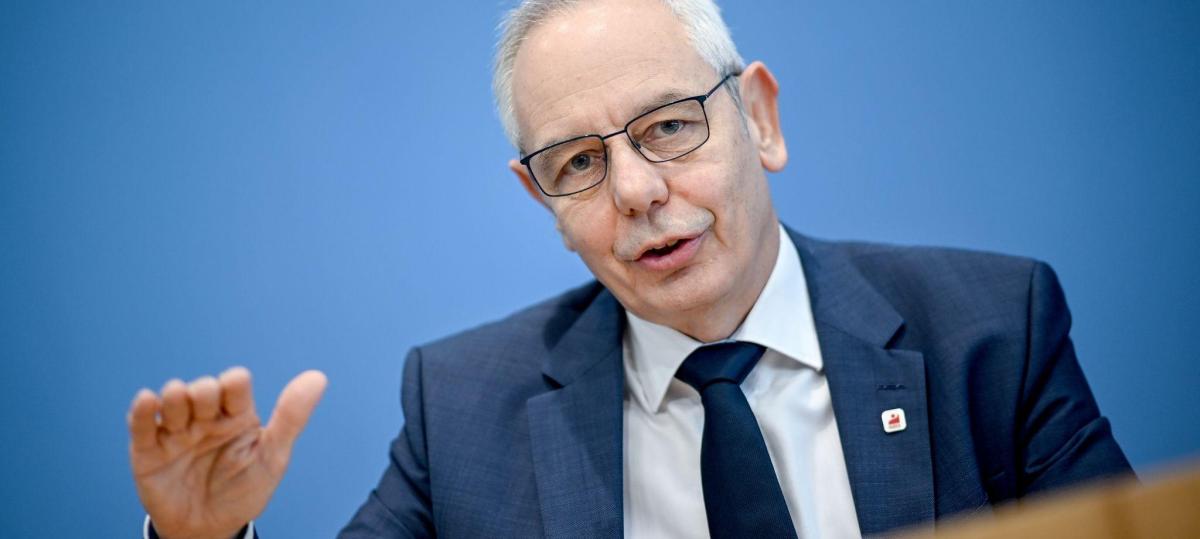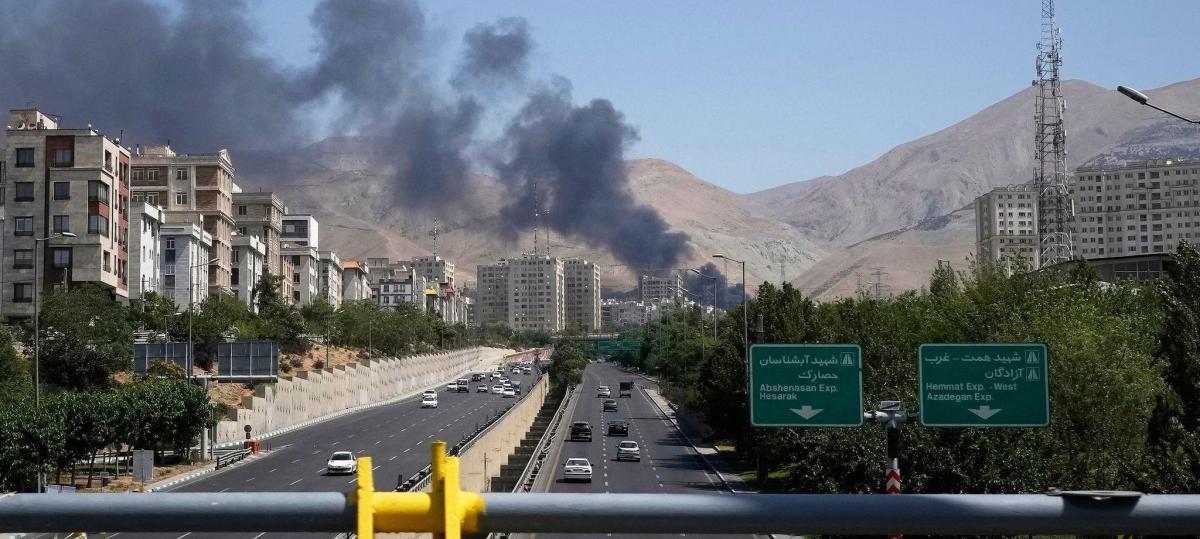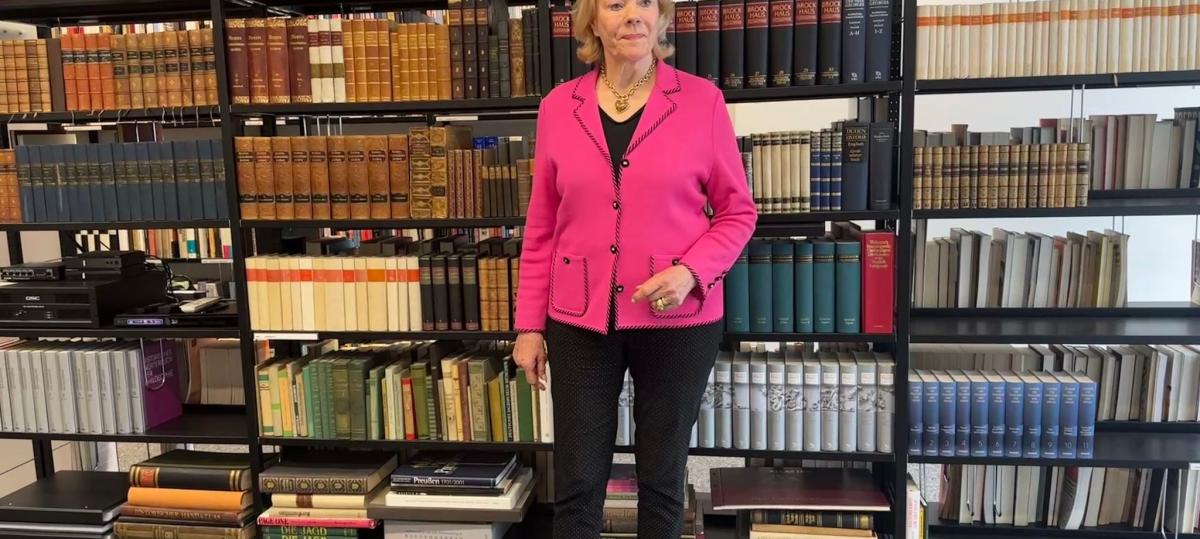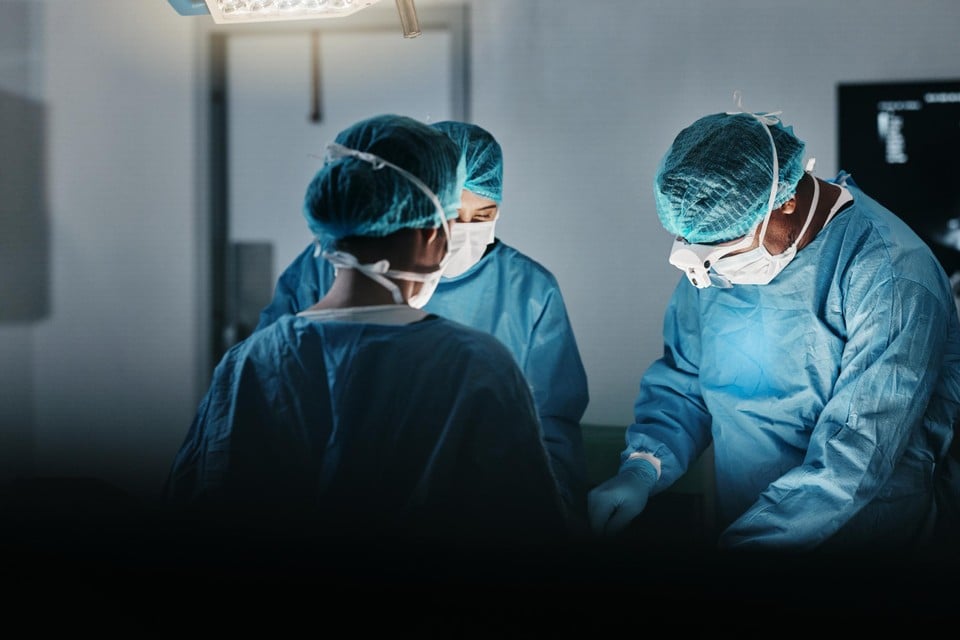For the IG BCE chairman Vassiliadis, the Germans are not lazy and sluggish.

Mr. Vassiliadis, the motto of the unions for the day of work on May 1st reads: « Make yourself strong with us. » As chairman of the IG Bergbau, Chemistry and Energy Union, they stand out for a one -off asset for super -rich. So far, they have not appeared as a billionaire fright. What drives it?
Michael Vassiliadis: The Bundesbank has just calculated that the German private assets exceeded the nine-billion euro brand. Incidentally, they have grown only in the richest ten percent, which now alone is eliminated half of the total assets. So the rich benefit from Germany’s economic strength above average and are obviously hardly affected by all the crises of the past. It would not only be a sign of solidarity and takeover, but also economically sensible if they would invest in the country’s turnaround.
Of course, none of this is in the coalition agreement between the Union and SPD. Germany’s mega rich do not have to be afraid.
Vassiliadis (laughs): I deliberately made the proposal in the current situation. Many also see the advantages: first of all, we propose a one -time delivery and therefore no tax. Second, the levy should only include the richest per thousand of the population, i.e. around 84,000 people with assets significantly beyond ten million euros per capita.
How much money would the state collect with such a tax?
Vassiliadis: A one -off delivery of five percent would collect more than 175 billion euros alone. This is all manageable. We need fresh ideas to finance the big tasks in front of which we are facing. This is one. Unfortunately, the new coalition did not dare to do so – even though it obviously is looking for money. That’s a shame.
But also understandable. A tax levy does not match the brand core of the CDU And certainly not in the world of Friedrich Merz.
Vassiliadis: People with great assets also benefit from the infrastructure. Above all, they would be the largest beneficiaries if Germany’s economy started again with an improved infrastructure. In the end, we de facto speak of an investment in our own increase in assets. What should the multiple millionaires and billionaires have?
How violent were the spanking they had to take for the advance?
Vassiliadis: The spanking failed to materialize. The idea was rather ignored. So eyes, ears and mouth.
That sounds frustrating.
Vassiliadis: No, something like that takes. We know that and we won’t let up. It is part of our historical experience to drill thick boards. IG BCE as the second largest industrial union in Germany is not without influence. The employees in our industries also feel this: As far as the number of members are concerned, we recorded an access record last year. With 35,300 women and men, again eleven percent more people decided to membership in our union.
Why is that?
Vassiliadis: It also plays a role in that the income of chemical workers with the April billing increases by 4.85 percent, which has been the thickest plus in 33 years. And union members receive an additional day off.
Speaking of money: the coalition is not yet in office, but but SPD And Union is already fighting violently over the way the minimum wage increase from now 12.82 to 15 euros per hour. This should not decide the government, but initially the minimum wage commission provided, in which representatives of unions, employers and science sit.
Vassiliadis: The minimum wage commission should develop a proposal without interfering politics how strong and when the minimum wage is raised. The coalition agreement only says that an increase in the minimum wage can be justified to 15 euros from social considerations. That’s right, and we all share that. Now the minimum wage commission must and will solve this question.
But the dispute over the minimum wage does not subside.
Vassiliadis: Politics should not make political guidelines to the Commission and do not constantly fuel the topic. In the end, the government, when the Commission has made a proposal, has the last decision of decision anyway. In any case, I warn of a completely factual public debate about the minimum wage.
The planned new working time law is also discussed as well.
Vassiliadis: The topic is constructed by the employers’ associations and is completely overwhelmed.
Why then? If the average daily maximum working time of eight hours was replaced by a weekly maximum working time of 48 hours, employees could work more flexibly. That is positive.
Vassiliadis: Where we have concluded collective agreements, the working time regulations are already flexible. But there are also limits: in many production areas, for example in the chemical industry, work is being done around the clock – 365 days a year on seven days of the week. It takes finely balanced layer models. The weekly working time regulation does not bring anything here. In addition, the specifications at the highest daily work time are not without reason: They are based on the knowledge of occupational medicine and serve health protection.
However, since only about half of the companies are bound by the tariff, employees in non -tariff companies could also work flexible thanks to a weekly working time, for example six hours on one day, the next ten hours. Why do you defend yourself against?
Vassiliadis: Because employers in companies without tariff protection or without functioning co -determination with a new weekly working time law could make it even easier to work. The laws are often tacitly undermined today. With further flexibility, the gate would be open even further – with impending consequences for the health of those affected.
However, employers and CDU politicians advertise to change working hours, even with the argument that employees could better agree family and work if they are allowed to work more and one day less.
Vassiliadis: Again: this is already common today, where the work processes give it up and collective agreements regulate it cleanly. I don’t like the message that is transported here because it does not represent the reality extensively. I also discussed this in the election campaign with Mr. Linnemann, the CDU Secretary General.
What do you have from the right hand of Friedrich Merz said?
Vassiliadis: I asked him: What do you want to tell my people with it? That you are on the couch? That is not the guiding principle of German workers. These are mostly highly committed people who enjoy their job and who justify the success of the German export industry.
Do Linnemann & Co.
Vassiliadis: We have completely different problems in Germany: the proportion of people without vocational training has been growing for more than ten years. It is now 13 percent of 20- to 34-year-olds. Politicians should take care of that. And medium -sized companies in particular have to be encouraged to further qualify their employees regularly. The motto too often applies there: if there is a lot to do, there is no time for qualification. And if there is little to do, the money is missing. We have to combat the shortage of skilled workers more active. Our current economic crisis has nothing to do with the willingness of the employees. We have not all become sluggish and lazy in Germany. On the contrary.
But the German economy is in the third year in the crisis. Can the Union and SPD prevent further de -industrialization of Germany?
Vassiliadis: Both political blocks agree that they have to take care of the economy and industry. That is positive. It is clear to those responsible: if we do nothing, we lose a significant share of our industry in Germany. I find it particularly positive that the coalition of Germany makes the world’s most innovative chemical, pharmaceutical and biotechnology location and wants to develop a chemical agenda 2045 together with us and others. That is overdue.
Why did too little happen for a long time?
Vassiliadis: For a long time, Germany struggled with the chemical industry, although the industry is an essential mainstay of our economy and, above all, systemically relevant. If the future government really gets through to reduce the costs of energy and climate protection for industry, this can help to finally make the relocation and decommissioning wave in the industry.
The situation is obviously serious. You said that in the German basic industry, especially in the chemical industry, the hut burns the hut.
Vassiliadis: Around 25,000 employees in the chemical industry are already affected by relocations or closures of facilities. If individual systems are closed in large chemical companies because the energy costs are too high, it is not public. We have to stop this farewell to installments.
Does the situation continue to come to a head?
Vassiliadis: Not the entire chemical industry is equally affected. There are about 20 to 25 percent of capacities in the fire – especially the first, particularly energy -intensive production level. In addition to the approximately 25,000 jobs that have already been eliminated or are still being dismantled, another about 25,000 could be added if we do not finally counteract – for example by reducing energy costs or reducing nonsensical regulations.
How much would the elimination of such industrial plants damage the location of Germany?
Vassiliadis: Significantly, because enormous amounts of basic materials are generated in these systems. If the systems are closed in this country, you would have to create an infrastructure so that the fabrics from abroad come to BASF in Ludwigshafen. For example, if you have to transport tons of ammonia past the Loreley in the narrowest point of the Middle Rhine, nobody really wants it.
What threatens the chemical industry in the end?
Vassiliadis: If, for example, we no longer produce ammonia in Germany and at the same time fail to build up the infrastructure for deliveries from abroad, even more stages of the chemical industry in Germany are eliminated, and subsequently further production levels in industry. By the way: Without a powerful chemical industry, Germany cannot successfully expand the armaments industry. Ammunition, for example, essentially consists of steel and chemistry. And the energy transition does not work without chemicals either. This also includes particularly resistant plastics in wind turbines. In short: We need chemistry not only for nutrition, health and mobility, but also to become more defensive and sustainable.
To the person: Michael Vassiliadis, 61, comes from Essen. After completing the junior high school, he completed an apprenticeship as a chemical laboratory at Bayer AG and, after the end of his apprenticeship, had this profession until 1986. From 2004 to October 2009, the employee representative was a member of the executive head of the IG BCE. Vassiliadi’s IG BCE has been chairman of IG BCE since October 2009. The SPD member is deputy chairman of the supervisory board of RAG AG and a member of the Supervisory Board of BASF, Henkel and Steag.







